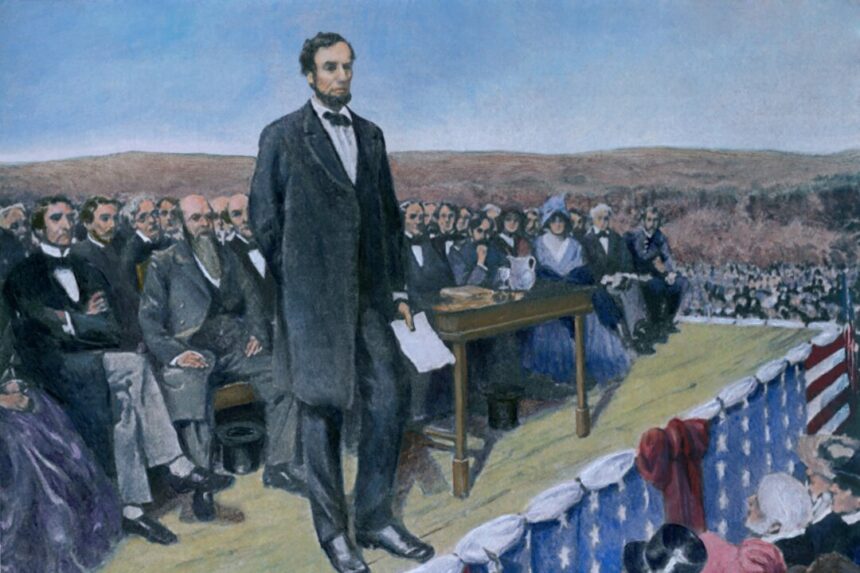The following is an excerpt from “A Horse for Mr. Lincoln” by the Hon. Preston Manning, a fiction novel exploring an alternate history where Abraham Lincoln did not go to the theatre on April 14, 1865. In this scene, President Lincoln engages in a playful measuring contest with his guests, much to the dismay of Mrs. Lincoln. As the President struggles with his new boots, chaos ensues, leading to a comical confrontation with Mrs. Lincoln who is unimpressed with the situation. Despite her anger, Mr. Lincoln remains unfazed, choosing to give his wife some space before attempting to make amends. I am not leaving now, so let’s have another round, sit by the fire a little longer, and maybe share a story or two,” he said. To the surprise of the troopers and myself, he returned to the fire, sat down, and gestured for the troopers to do the same.
“Since we are brought together by a horse, tell me a horse story, boys. You cavalrymen must have plenty of them,” he said.
“Well,” Durham began tentatively, “there’s one about…” And the storytelling commenced, with laughter filling the room. The President joined in, his shoulders shaking with laughter. It was a stark contrast to the formalities of the Cabinet room, where his attempts at storytelling were met with indifference.
As the troopers shared their tales, the President suddenly grew somber. “And now, tell me boys, how is John Buford these days?” he asked.
The troopers exchanged uneasy glances. Durham finally spoke up, informing the President of Buford’s passing due to typhoid fever. The President’s mood darkened further as he began to recite the names of fallen soldiers and civilians, his grief pouring out in tears and sobs.
Witnessing this outpouring of emotion, I realized that this moment had been building for years. The President had suppressed his emotions throughout the war, but now, with its end, he could finally release them. And it seemed fitting that he did so in the presence of these troopers, representatives of the common people and soldiers who had suffered so much.
Durham, without hesitation, embraced the President, offering comfort in his time of need. Feeling out of place, I quietly left them to their moment of solace.
When I returned, the troopers had left, and the President sat alone by the fire. As I entered, he rose from his chair.
“An extraordinary evening, Hay,” he murmured. An evening of tragedy and near-miss.
“If it hadn’t been for those three troopers, and their generosity in giving me the horse, and our shared drink and stories, I would not be alive today, and our country would be facing an even greater crisis,” the President remarked.
“We owe those troopers a tremendous debt of gratitude, sir, a tremendous debt,” I agreed.
“I couldn’t agree more, Hay, and Mrs. Lincoln feels the same way,” the President responded enthusiastically.
“Here’s what I need you to do. Head over to the War Office, gather information on those troopers, and locate them. They must be properly thanked for their service to me and the Union. Is that clear?” the President instructed.
“Yes, sir!” I replied as I hurried out of the room towards the War Office.
Upon reaching the War Office, I sought out Captain George Weston, the liaison officer.
After explaining the situation, Captain Weston immediately requested the names of the troopers.
After providing him with the names, Captain Weston left to gather information.
Upon his return, Captain Weston seemed perplexed.
He handed me back the paper with a surprising response from the records department.
Without saying a word, I rushed back to the White House and handed the paper to the President.
After reading the devastating news, the President looked at me in disbelief.
“Privates Gabriel B. Durham, Homer C. Stedman, and Thomas G. Blanset, all of the 12th Illinois Cavalry, were killed in action on the first day of the Battle of Gettysburg, July 1, 1863,” the President read aloud.
Views expressed in this article are opinions of the author and do not necessarily reflect the views of The Epoch Times.
Please rewrite this sentence.
Source link






